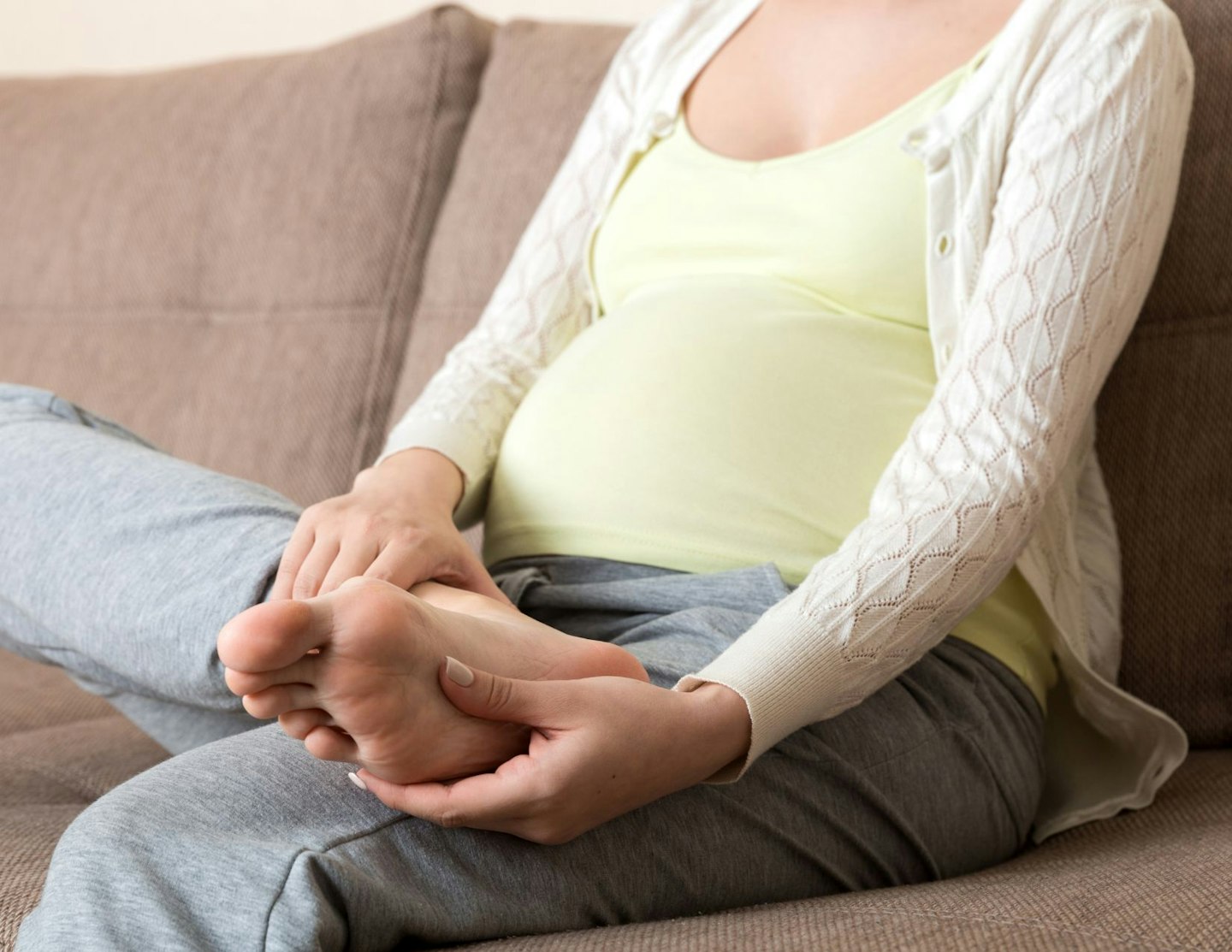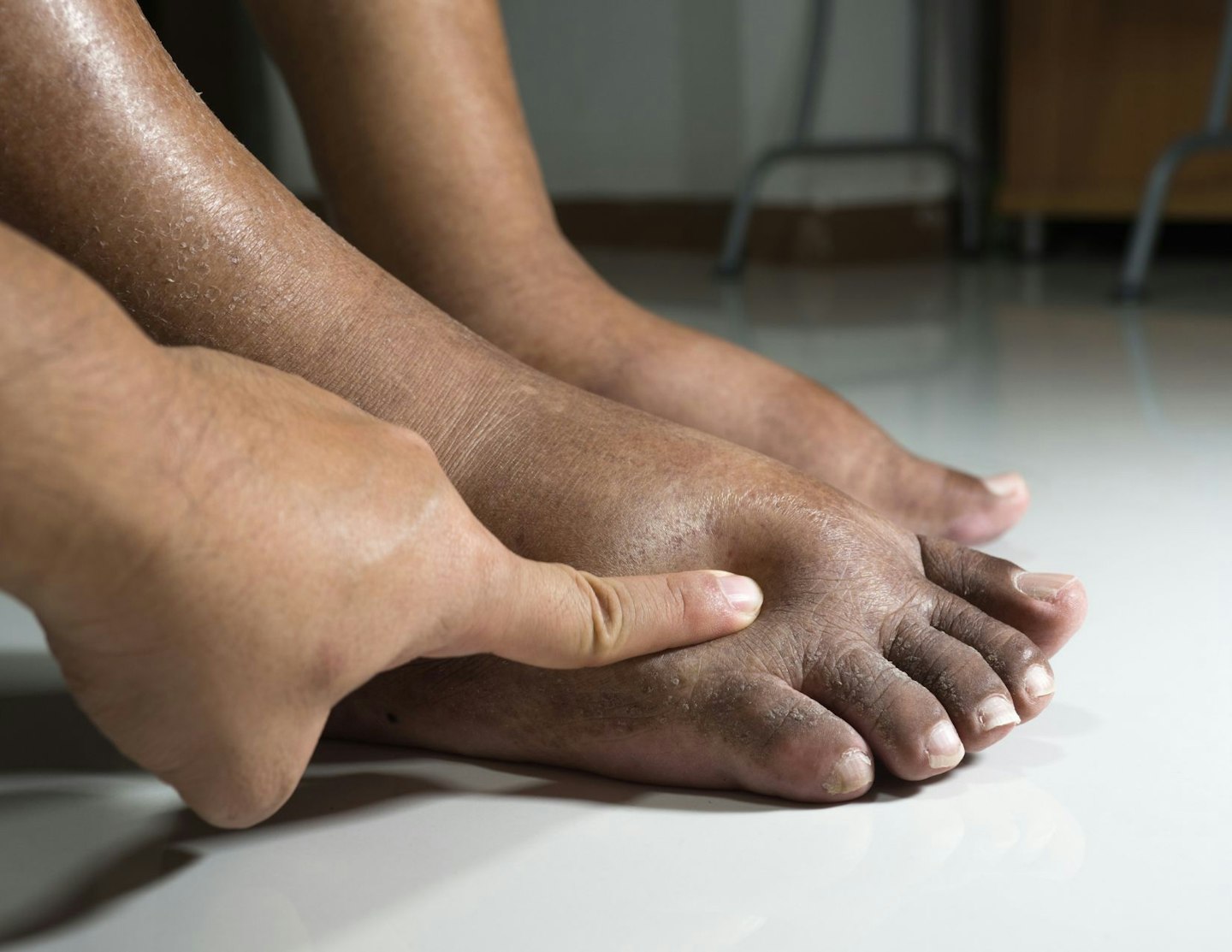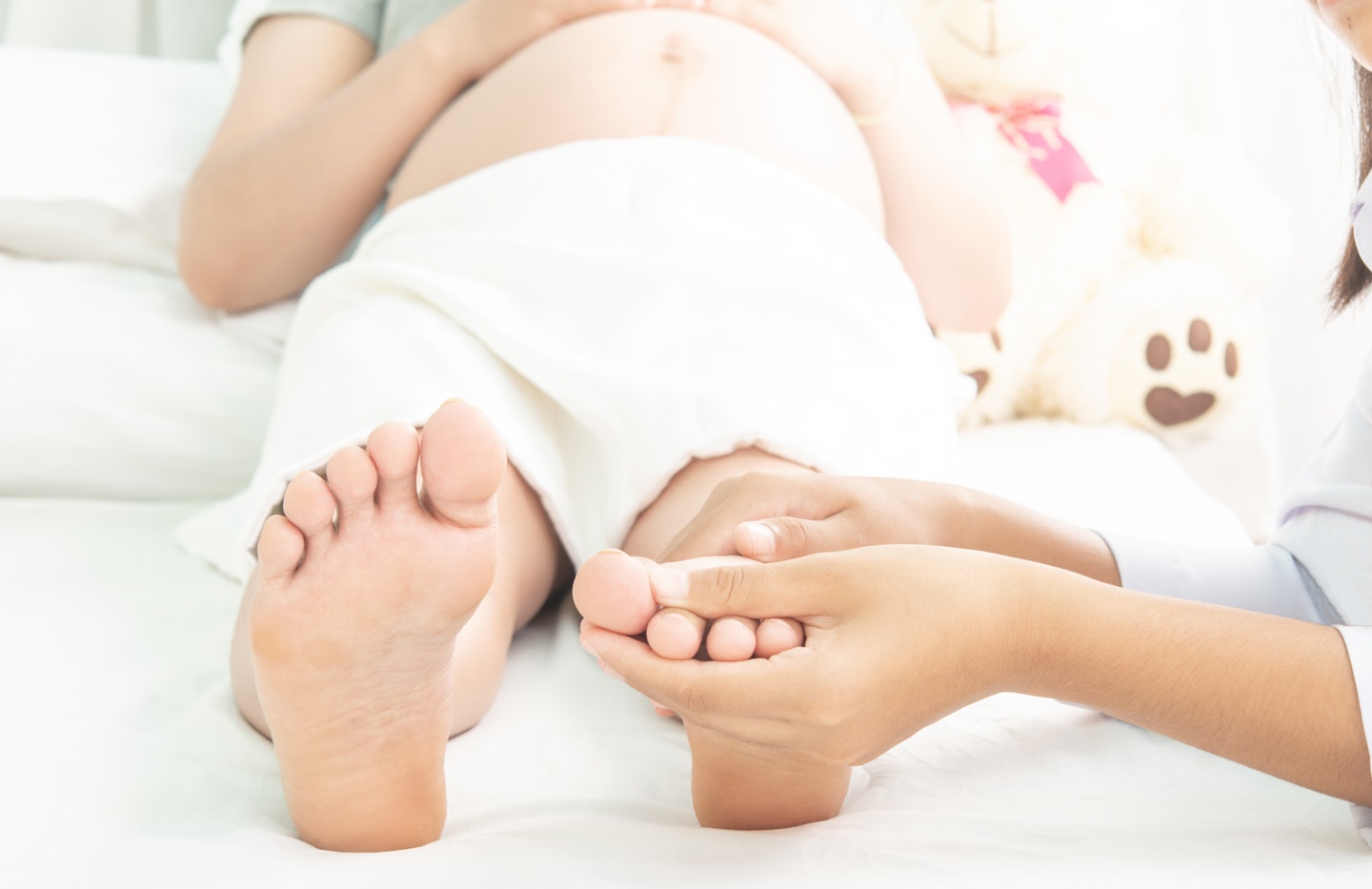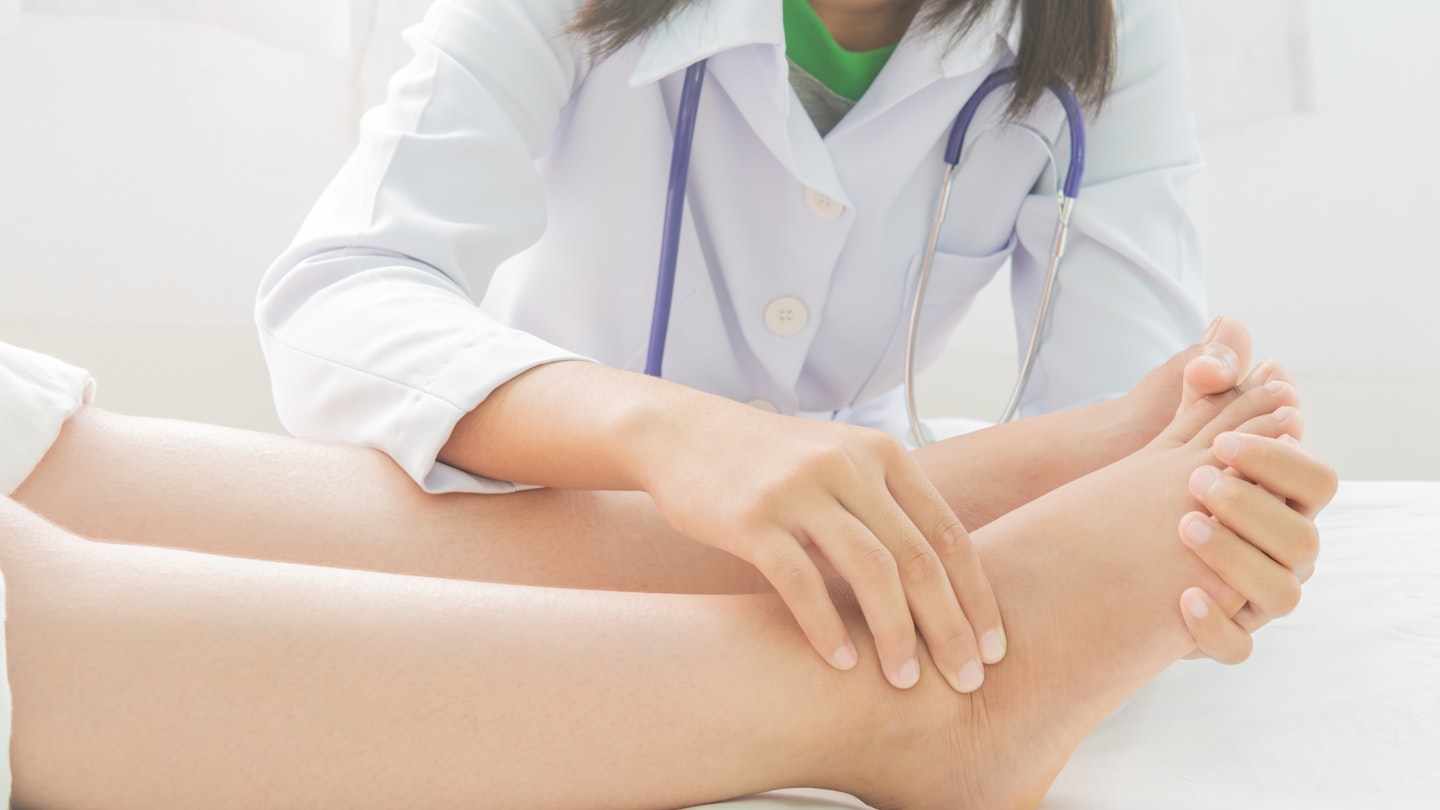Pregnancy symptoms can be pretty debilitating at times. From extreme fatigue to morning sickness, back pain to headaches and migraines - it's not exactly a bed full of roses. But one symptom that isn't talked about enough is feet swelling or to use the technical name, edema.
Swelling, like morning sickness, is a pregnancy symptom that many expect. You are bound to notice mild swelling in your body throughout pregnancy, but it might feel particularly severe in your ankles and feet, thanks to the laws of gravity, but your feet swelling can feel limiting, which is why remaining informed can be incredibly helpful.
Whether you're pregnant and already struggling with swollen feet, or you just want to prepare for possible pregnancy symptoms, here's everything you need to know about your feet swelling in pregnancy, including how to get some much needed relief.
What causes your feet to swell during pregnancy?
Your ankles and feet can swell when you're pregnant because your body fluids are increasing, in order to nurture both you and your baby. The fluids accumulate in your tissues due to the pressure of your growing uterus on the pelvic veins. It all sounds very technical, but all it means is that it causes you to experience swollen ankles and even hands too.
That combined with the added weight and pressure on your legs, ankles, and feet can create a uncomfortable feeling. Yes, it's common, but that doesn't mean it's any less frustrating - but you'll be relieved to hear there are ways to get some relief.

When can I expect feet swelling to happen?
The majority of women experience their feet swelling, plus swollen ankles, around week 22 to week 27 of pregnancy. After that, it, unfortunately, can stick around until you're due to give birth. But 1 in 4 women don't experience any swelling at all, so feet swelling may not be something you have to worry about!
The amount of feet swelling you experience can vary by the hour. It increases in the evening and is affected by the weather, for example, it's often worse in the heat.
When should I be concerned about swollen feet during pregnancy?
In the majority of cases, swelling in pregnancy isn't dangerous. The swelling of the ankles and feet caused by edema is harmless and perfectly normal! You should contact a doctor if you experience excessive or extremely painful swelling as it could be a sign of pre-eclampsia.
How do I know if my swollen feet is pre-eclampsia?
If pre-eclampsia is the case for you, it would be accompanied by a variety of other symptoms such as elevated blood pressure, rapid weight gain and protein in the urine. So if your blood pressure and urine are normal (they're checked at each prenatal visit), there's nothing to worry about!
A good way to test for possible pre-eclampsia when it comes to swollen feet, is to press down into the skin - is this leaves an indentation for a few seconds, it could be a sign of a more serious issue.

Does swelling feet mean labour is near?
It's not always the case, but yes, the swelling in your feet does get more intense in the later stages of pregnancy, especially if the temperature outside is higher too. You can possibly take that as a sign that labour is around the corner.
What helps with swollen feet while pregnant?

• Elevate your legs when sitting - this really helps
• Sleep on your side, which is also great for back pain
• Try to take some pregnancy-friendly exercise such as walking or swimming. This keeps the blood flowing instead of pooling.
• Avoid long periods of standing or even of sitting - variation is key. Take a 5-minute stroll every hour if you're sitting down a lot.
• Don't wear tight elastic socks or stockings
• Wear COMFORTABLE shoes and get some orthotic inserts while you're at it.
• Drink lots of water! Drinking eight to ten glasses of water a day will help rid your system of excess sodium and other waste products, minimizing swelling.
• Ask your partner for a foot massage...
Maeve Campbell is a writer for Mother&Baby, writing about lifestyle, parenting, and pregnancy topics.
